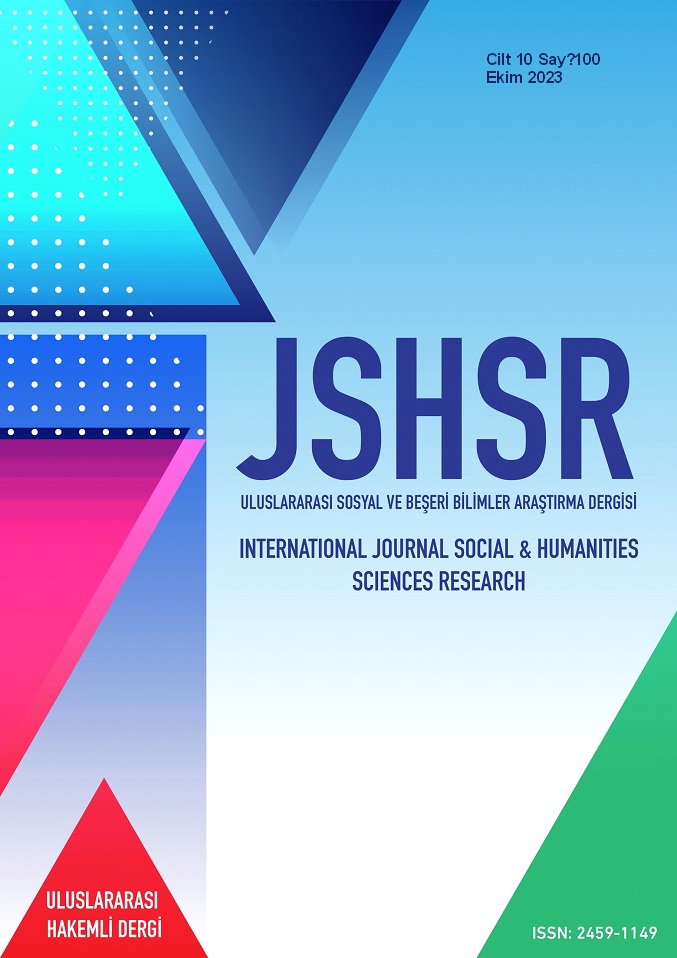Divided Man’s Journey to Unity in the Myth of Prometheus
DOI:
https://doi.org/10.5281/zenodo.10045816Keywords:
Division, Unity, Creativity, TransformationAbstract
In this article, the possibility of man’s adventure off being himself is discussed in the context of the Prometheus myth. Traditional narratives of the myth focus on the contribution of fire, the gift of the Prometheus figure to humanity, the development and progress of humanity and the symbolic meanings of fire. Fire is sometimes read as a symbol that causes rebellion, sometimes freedom and creativity, and sometimes agony and misery. In this article, fire is considered a spiritual spark that is inherent in man in the process of acquiring self-consciousness and self- awareness and makes the transformation possible for him. The article primarily focuses on the fall, separation and division experienced by the naked human being, who alone undertakes the responsibility of creating himself. The person who experiences this separation from himself, this division identifies himself with a part of himself. As a result of this identification, the transformation of the person who acts by ignoring the other, the other within himself, becomes impossible. In order for the self to become conscious of itself as a whole, a moment is needed in which both parts meet. In the article, the moment of encounter between Prometheus and Epimetheus, which becomes evident in the myth, is discussed as a model for the creative, free human being who realizes the possibility of constantly transcending and transforming himself. Thus, in this moment of encounter or awareness, the meaning of the same and the difference, freedom and necessity, the determined and the uncertain, the difference in repetition is revealed and opens unlimited possibilities in the adventure of being oneself.
References
Aiskhylos. (1968). Zincire vurulmuş Prometheus. Azra Erhat ve Sabahattin Eyüboğlu (Çev.), Bilgi Yayınevi.
Balaban, O. (1987). The myth of protagoras and plato’s theory of measurement. History of Philosophy Quarterly, 4(4), 371-384. https://www.jstor.org/stable/27743826.
Corbeau, C. (2005). From myth to symbol: nineteenth century ınterpretations of prometheus. https://www.semanticscholar.org/paper/From-myth-to-symbol.
Dorfman, E. (2017). Titanic times: epimetheus and prometheus between differance and deferred action. SubStance. 46(3), 61-65.
Dougherty, C. (2005). Prometheus. Routledge.
Ferrarin, A. (2000). Homo faber, homo sapiens, or homo politicus? Protagoras and the myth of Prometheus. The Review of Metaphysics, 54(2), 289-319. https://www.jstor.org/stable/20131532.
Franssen, T. (2014). Prometheus through the ages: from ancient trickster to future human. https://ore.exeter.ac.uk/repository/bitstream/handle.
Goethe, J. W. (2002). The poems of Goethe. Edgar Alfred Bowring (Trans.), Pennsylvania State University.
Hesiodos, (1977). Hesiodos eseri ve kaynakları. S. Eyüboğlu ve A. Erhat (Çev.), Türk Tarih Kurumu Basımevi.
Huckel, H. (1955). The tragic guilt of prometheus. American Imago, 12(4), 325-336.
Kerényi, C. (2012). Prometheus: insan varoluşunun arketip imgesi. Türel T. (Çev.). Pinhan Yayıncılık.
Platon. (2009). Diyaloglar. (5. Basım), Remzi Kitabevi.
Sartre, J. P. (2009). Varlık ve hiçlik. T. Ilgaz ve G. Çankaya Eksen (Çev.). 2. Baskı, İthaki Yayınları.
Downloads
Published
How to Cite
Issue
Section
License
Copyright (c) 2023 INTERNATIONAL JOURNAL OF SOCIAL HUMANITIES SCIENCES RESEARCH

This work is licensed under a Creative Commons Attribution 4.0 International License.


